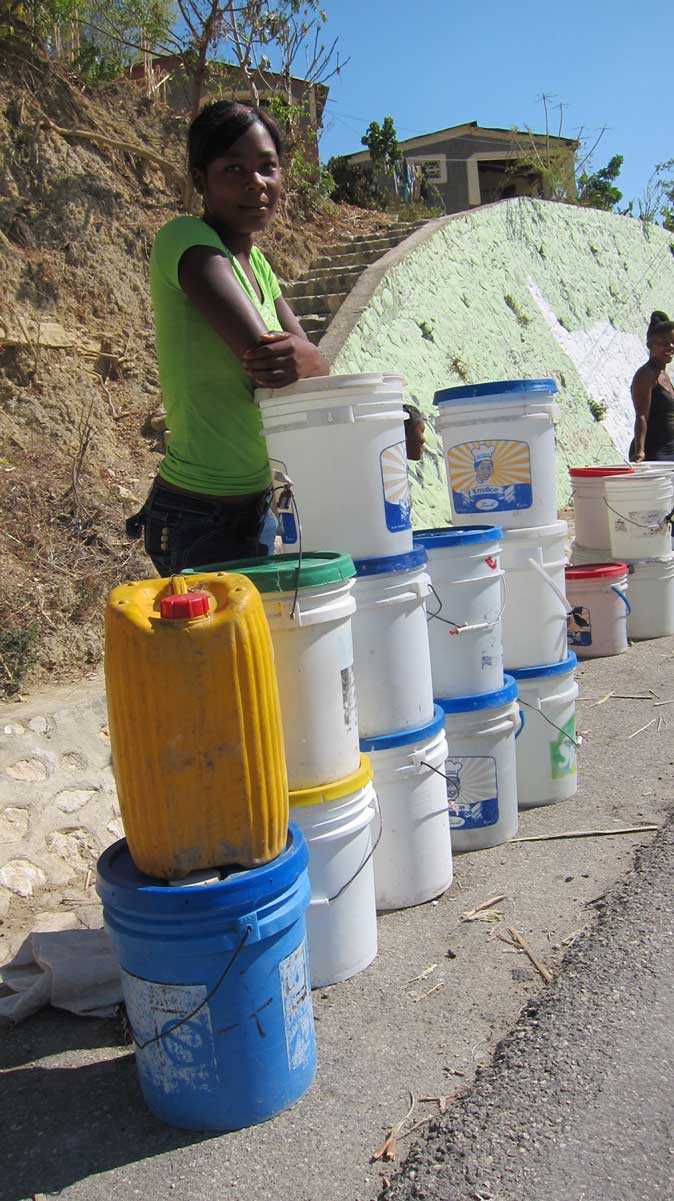Safe Water

Trianon, Haiti - A community member gathers water from a spring in the village of Trianon as staff members of DINEPA (the National Directorate for Drinking Water and Sanitation) test the water for chlorination. With CDC support, 54 of the 270 Drinking Water and Sanitation Technicians (TEPAC's by their French acronym) across Haiti who work for DINEPA are equipped with motorcycles and testing equipment, as well as have their salaries covered.
Access to safe water and sanitation are fundamental to public health. The National Directorate of Potable Water and Sanitation (DINEPA) was created to address challenges to and lack of regulations for the rural water sector in Haiti. Since its inception, DINEPA has established regional water and sanitation offices in each of Haiti’s four main regions, and Rural Departmental Units in each of the country’s 10 departments. To further support and strengthen this work, CDC developed and helped implement training for over 250 rural potable water and sanitation technicians who work in all rural areas of Haiti to inventory, rehabilitate, and disinfect rural water supplies.
- Page last reviewed: September 22, 2015
- Page last updated: September 22, 2015
- Content source:
Global Health
Notice: Linking to a non-federal site does not constitute an endorsement by HHS, CDC or any of its employees of the sponsors or the information and products presented on the site.


 ShareCompartir
ShareCompartir